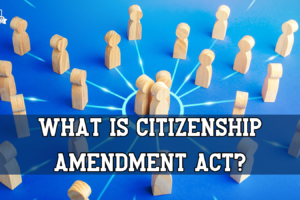
Fundamental Rights vs. Directive Principles of State Policy | UPSC Polity
The Indian Constitution guarantees Fundamental Rights and Directive Principles of State Policy (DPSP) to protect the rights of individuals and promote the welfare of the society. In this blog post, we will compare these two important pillars of Indian democracy and understand their significance in shaping the nation
Fundamental Rights are the basic rights that every citizen of India possesses. They act as a shield against any form of discrimination or infringement by the state
Nature:
Fundamental Rights are justiciable, which means they can be enforced in a court of law. Citizens can approach the judiciary to seek protection and remedies if their rights are violated.
Individual Focus:
Fundamental Rights primarily focus on safeguarding the rights of individuals. They guarantee equality, freedom of expression, religion, and protection against exploitation.
Restrictions on the State:
These rights impose limitations on the powers of the state. They ensure that the government does not infringe upon the basic liberties of its citizens and maintains a fair and just society.
Directive Principles of State Policy (DPSP):
DPSP are the guiding principles for the government in formulating policies and laws. Unlike Fundamental Rights, DPSP are not legally enforceable.
Nature:
DPSP are non-justiciable, which means they cannot be enforced through the courts. However, they provide a moral and political framework for governance and policy decisions.
Focus on Welfare:
DPSP primarily focus on the welfare and well-being of the society as a whole. They aim to establish economic and social justice, reduce inequality, and uplift marginalized sections of society.
Harmonization with Fundamental Rights:
While DPSP and Fundamental Rights may seem distinct, they are interconnected. The state is expected to strike a balance between implementing DPSP and respecting the Fundamental Rights of individuals.
Also Read
Indian ASEAN Free Trade Agreement (FTA): Strengthening Economic Ties | UPSC International Relations
What is IBSA and why is it important? | UPSC International Relations
Exploring the Ocean Floor: What Lies Beneath the Waves | UPSC Geography
Tag:DPSP, Fundamental Rights, IAS, IFS, Indian polity, IPS, IRS, Polity, UPSC



